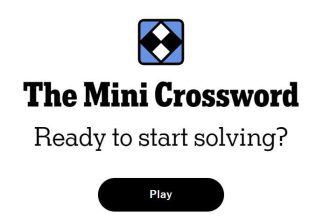Do you feel like you’re spinning your wheels, professionally speaking? Maybe you’re busy working hard, but your efforts haven’t produced much growth, leaving you bewildered and frustrated.
Unfortunately, all the hustle in the world won’t help if you lack the one element essential for career success: clarity.
You can’t make progress if you can’t identify your goals. And you’ll never get what you want if your priorities aren’t aligned with them.
Here are two simple questions to help address both issues:
1. What do I want?
When you’re clear, everything becomes easier. People understand you, what you offer, your value, what differentiates you, how you can help them, and how they can assist you.
Even so, this seemingly straightforward question can be surprisingly tricky to answer. Some wrestle with insecurities and fears about acknowledging their true desires; others have never pushed the pause button on their busy lives long enough to give themselves space to do so.
The key to answering this query is clarifying what matters most to you right now. Your answer will likely differ from your friends or co-workers, what someone else may want for you, or even what you thought you wanted. Realize that your response can—and most likely will—change over time. Early in your career, you might be looking for something completely different than you will be at a later stage of your professional journey. It takes thoughtful introspection and, sometimes, a reality check: do you really want (fill in the blank), and are you willing to do what it takes to achieve it?
But here’s the thing about clarity: it demands specificity, and there is no room for a wishy-washy answer. You can’t make progress if you “kind of” want something.
For instance, it’s not enough to say you want to “work with people.” Instead, dig deeper to determine what elements of working with people you enjoy most. Would you rather work with high school students or senior executives? Do you like interacting with people one-on-one or as part of a larger team? And would you prefer to do so in a stable company environment or a fast-paced start-up?
The more focused you can be about what matters most to you, the better.
2. Does this (thing, person, environment, etc.) support or prevent me from achieving what I want?
After you know what you want, your ability to focus your attention on your goals is crucial. How and with whom you spend your time and your productivity while doing so correlates to your ability to achieve those goals. You must align your priorities with what matters most to you.
Practice awareness to understand how you spend your days. Ask yourself what you’re currently choosing to devote your time to and if this choice supports your short- or long-term goals or prevents you from achieving them. When you’re intentional with your time management, you’ll find that certain activities drop away, making way for other, more productive pursuits.
And this doesn’t just apply to things; consider with whom you’re spending your time. If the people in your environment are holding you back from accomplishing what you need to do, consider establishing firmer boundaries—and finding a new inner circle of those who support your goals.
One final note: We tend to make time for what’s important to us. Your actions—or lack thereof—can speak louder than words. If you’re consistently struggling to make time for what you say you want, ask yourself if you want something else. Because if you’re not changing it, you’re choosing it.
Remember, clarity is essential for career success because it enables you to identify your goals, align them with a plan to achieve them, and avoid the things that can derail you.
Read the full article here





